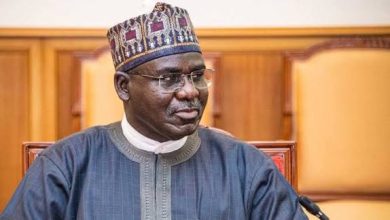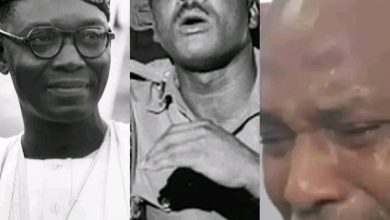Roadmap Towards Eradicating Human Rights Abuses in Nigeria

By Passman Akpos, Boniface Kassam, Badmus Damilola Elizabeth, Lawal Olusesan (anewalife@gmail.com), Glory Yegra Eneji, Anjorin Oluwakemi Olamiotan, Ogechukwu Oputa
Human rights abuses in Nigeria have been a persistent and alarming issue for decades. Despite being one of Africa’s largest economies and the most populous nation, Nigeria’s human rights record remains marred by violations, including extrajudicial killings, torture, gender-based violence, and restrictions on freedom of expression and of association. While Nigeria has made strides in addressing human rights challenges, much more needs to be done to eradicate these abuses. This article explores the solutions to tackling human rights violations in Nigeria, with concrete examples and evidence of abuses that highlight the urgency of the situation.
Before diving deep into this study, let take a brief historical view of human rights *abuses* in Nigeria.
The history of human rights abuses in Nigeria can be traced back to the era of military rule, particularly under the regimes of Generals Ibrahim Babangida and Sani Abacha. These periods were marked by rampant suppression of dissent, arbitrary arrests, and targeted violence against activists and journalists. Notable cases include the assassination of Dele Giwa via a parcel bomb, the harassment and detention of the late Gani Fawehinmi, and the mysterious bombing of Bagauda Kaltho, a journalist with The News magazine, in Kaduna. The controversial plane crash killing targeted army chiefs in this said regime is believed to be ethnic cleansing of officers to make room for their in-power stability
In response to these abuses, civil society groups such as the Civil Liberties Organisation (CLO) emerged, playing a critical role in documenting violations and advocating for justice. The media also stood at the forefront of resistance, often at great personal risk
The struggle for freedom of expression and access to information was further advanced by groups like Media Rights Agenda, whose advocacy contributed to the eventual passage of the Freedom of Information Act. Similarly, persistent campaigns by civil society organisations led to the enactment of crucial laws such as the Violence Against Persons Prohibition (VAPP) Act and the Child Rights Act. However, despite their passage at the national level, implementation remains uneven, as several states have yet to domesticate these laws.
Overall, the fight against human rights abuses in Nigeria has been long and hard-fought, with civil society and the media playing vital roles in pushing for accountability, transparency, and the protection of fundamental rights.
Human Rights Abuses in Nigeria: A Snapshot@Before delving into solutions, it’s essential to understand the scope of human rights abuses in Nigeria.
(1). A brief look at documented patterns of human rights abuses in Nigeria. And how it has fared* under the Bola Tinubu ~current~ administration since May 2023 in Nigeria till date.
A. Excessive Use of Force & Violent Crackdowns on Protests
During the nationwide protests in August 2024 (often called “#10DaysOfRage” or “EndBadGovernance” protests over economic hardship), security forces were reported to have used live ammunition, sometimes firing at head or torso, killing dozens of protesters.
Arrests and detentions of protesters, some charged with severe offences such as treason, incitement, or trying to topple the government, even for a largely peaceful dissent.
B. Suppression of Media Freedom & Free Speech
There have been many violations of media freedom — harassment, arrests, detention of journalists, bloggers, and human rights defenders for criticizing the government.
Use of the Cybercrime Act (and its amended versions) to silence critics, sometimes with questionable charges.
C. Harassment, Intimidation, and Threats Against Civil Society, Human Rights Organizations, and Journalists.
Amnesty International has been threatened with legal action by police over reporting on abuses. Civil society groups have frequently condemned what they see as targeting of human rights NGOs.
Abductions and detentions of journalists from their homes; poor treatment of detainees; arrests without charge or without informing relatives.
D. Arbitrary Arrests, Detentions, and Enforced Disappearances
There are reports of people being arrested without due process, sometimes by DSS (Department of State Services) or police, without notifying families.
Detentions of protesters, sometimes minors, and sometimes incommunicado or poor detention conditions.
E. Marginalisation of Ethnic Groups / Concerns of Discriminatory Appointments.
The Alaigbo Development Foundation (ADF) alleges increasing marginalisation of the Igbo (South-East Nigerians) in federal appointments and in the constitution of certain governmental bodies (e.g. Population & Census Commission).
F. Chilling Effect from Strategic Lawsuits and Legal Harassment
Cases like Omoyele Sowore, X (Twitter), Facebook being charged by the DSS for alleged “anti-Tinubu” posts are seen as attempts to suppress dissent through legal means (sometimes called SLAPPs — Strategic Lawsuits Against Public Participation).
Detentions or prosecution of individuals over social media, expression of opinion, or activism.
G. Weak or Delayed Accountability / Investigations
Human rights watchdogs like Amnesty have said the Tinubu administration has not adequately addressed past abuses, especially those committed by security forces in counter-insurgency operations in the northeast, or investigated incidents transparently.
2. Extrajudicial Killings and Police Brutality: One of the most notorious human rights violations in Nigeria is extrajudicial killings by security forces. The Nigerian Police Force and the Special Anti-Robbery Squad (SARS) have been particularly notorious for their involvement in killings, torture, and harassment of civilians. A prominent counter outcry of the public was the #End SARS protests in 2020, where Nigerian youth demonstrated against the abuses by the SARS unit. Protesters claimed that SARS officers were responsible for extorting money, kidnapping, and even killing civilians.
Concrete Evidences: In October 2020, when the #EndSARS protests escalated into violent clashes. Security forces were accused of firing on peaceful protesters at the Lekki Toll Gate in Lagos, resulting in several deaths. Though the government denied the extent of violence, human rights organizations like Amnesty International confirmed the use of force against peaceful protesters. *Nevertheless the Buhari administration dissolved SARS unit on October 11, 2020 which the Nigerian Police Force seems to quickly rebranded as Special Weapon and Tactics Team (SWAT) to replace SARS.
3. Gender-Based Violence: Nigeria struggles with widespread gender-based violence, including domestic violence, sexual harassment, and female genital mutilation (FGM). While various laws exist to combat these practices, enforcement remains weak, and many victims face societal stigma.
Concrete Evidences: The abduction of 276 schoolgirls from Chibok by Boko Haram in 2014 drew global attention to the plight of women and girls in Nigeria. Although some of the girls were later rescued, many remain missing, and the violence and abductions continue. Another tragic example is the rising number of cases of rape and sexual assault across Nigerian universities, often going unpunished due to societal pressures or lack of adequate legal protections.
4. Ethnic and Religious Persecution: Nigeria’s diverse ethnic and religious groups often find themselves at odds, leading to persecution and violent clashes. These tensions, coupled with a lack of effective political will, have led to widespread human rights abuses.
Concrete Evidences: The ongoing conflict between farmers and herders in Nigeria’s Middle Belt has resulted in a high number of deaths, with both groups accusing each other of human rights violations. Additionally, religious minorities such as Christians in the northern regions face persecution by extremist groups like Boko Haram.
Recommendations to Eradicate Human Rights Abuses in Nigeria
1. Reforming the Police and Security Sector: One of the most critical steps toward reducing human rights violations in Nigeria is comprehensive reform of the police and other security agencies. The #EndSARS protests underscored the urgent need for police reform, yet progress has been slow.
Recommendation #1:Establishing independent bodies to monitor the actions of police officers and military personnel can ensure accountability. Specialized training on human rights and de-escalation tactics should be mandatory for law enforcement officers. Additionally, creating a transparent mechanism for reporting police brutality and ensuring that officers involved in abuse are prosecuted would instill greater accountability.
Example: A positive model is the creation of Police Complaints Commissions in countries like Kenya and South Africa, where citizens can lodge complaints against police misconduct. Nigeria could adapt this model, making sure the commission is independent and has real power to enforce change.
2. Strengthening Judicial and Legal Protections: One of the key reasons human rights abuses persist in Nigeria is the lack of effective legal recourse for victims. The judicial system is often slow and corrupt, and many victims of human rights abuses never see justice.
Recommendation #2: Strengthening the judicial system, increasing the number of courts that handle human rights cases, and ensuring that judges and prosecutors are trained in human rights law are essential. Furthermore, the government must enforce existing laws like the Violence Against Persons Prohibition Act and the Child Rights Act.
Example: In Rwanda, a strong legal framework and judicial reforms have resulted in increased accountability for human rights abuses. Rwanda’s ability to successfully prosecute war criminals from the 1994 genocide, while rebuilding its national institutions, provides a model for Nigeria.
3. Enhancing Education and Public Awareness: Widespread ignorance of human rights is another factor contributing to the persistence of abuses. Many Nigerians are unaware of their rights, and there is often little public discourse about human rights abuses.
Recommendation #3: Increasing public awareness of human rights through educational programs, media campaigns, and public discussions can help citizens understand their rights and the mechanisms for seeking justice. Local and international NGOs can play a key role in these efforts, as can the media, which should focus on human rights reporting without fear of governmental retaliation.
Example: The work of organizations like the Human Rights Writers Association of Nigeria (HURIWA) in raising awareness about abuses is a positive step. By educating Nigerians on their rights, they can empower individuals to resist human rights abuses.
Just like the recurring activities of the Women of Inestimable Virtues (WIV) Human Rights Advocacy Academy, commonly referred to as “WIV Academy,” is known for training people in leadership, social entrepreneurship, and human rights activism in Nigeria.
WIV Academy offers programs around leadership and human rights advocacy, helping people learn how to defend justice and address human rights abuses.
WIV Works with social entrepreneurship—i.e. encouraging creative and sustainable ways to make a positive social impact.
Educates citizens about their rights, aiming for people to engage in socially responsible behavior.
Course outlines offered at WIV Academy includes;
(1) Leadership; Becoming an outstanding leader. -Qualities & Types of Leadership;
(2) A Successor: Having a successor. -Reproducing yourself in others. -Leaving a Legacy. -Importance of having a successor;
(3) Entrepreneurship; Who is an entrepreneur? -Quality of an entrepreneur. -Becoming a successful entrepreneur;
(4) Business growth. -Customer service -Customer growth;
(5) Advocacy; Who is an advocate? -Differences between an advocate and an activist;
(6) Activism; What it entails. -Who is an Activist & quality of a good activist. -Becoming an outstanding activist -Various types of activism. -Women right activist -Men right activist -Animal right activist -Political activist -Workers activist;
(7) The Law & fundamental human rights. -Understanding the law and your role -Protecting your rights and someone else’s rights;
(8)Reporting cases of abuse & human rights violation -What to do? -How to report?-Where to report? E.t.c;
(9) Humanitarianism – Community engagement. -Who is a humanitarian -Quality of a humanitarian -Challenges confronting humanitarians -Who is a Philanthropist -Differences between Humanitarian/philanthropist;
(10) NGO-Selecting a name for your NGO -Selecting board of trustees -Procedures for registering an NGO;
(11) Grants for your business -How to obtain grants for your business and social ventures ;
(12) Field works and projects.
These are currently offered in WIV academy, and this last group of trainees in 2025 is Cohort 5. You will agree, when more people are aware of their rights and with the increase of knowledge, abuse will be eradicated, and that’s what WIV Academy stands to do.
4. Promoting Gender Equality and Women’s Rights: Women in Nigeria face a particularly high level of abuse and discrimination. It is imperative that laws to protect women and girls be strengthened, and cultural practices that encourage gender-based violence, such as child marriage and FGM, must be abolished.
Recommendation #4: The government should implement stricter penalties for gender-based violence and ensure the protection of victims through the establishment of safe houses and counseling services. Additionally, more needs to be done to increase women’s participation in politics and decision-making.
Example: In countries like Tunisia, where strict laws have been implemented to combat gender-based violence, the number of reported cases has decreased, and more women are coming forward to seek justice. Nigeria can adopt similar reforms.
5. Addressing Religious and Ethnic Tensions: Nigeria’s ethnic and religious tensions continue to fuel human rights violations, especially in the northern regions, where Boko Haram and other extremist groups have targeted religious minorities.
Recommendation #5: Promoting interfaith and intercultural dialogue can reduce religious and ethnic tensions. Government policies should emphasize unity, tolerance, and equality among Nigeria’s diverse groups. Additionally, community-level peacebuilding initiatives can foster understanding and cooperation.
Example: Nigeria has a history of ethnic and religious reconciliation efforts, such as the National Peace Committee formed after the 2015 elections. Strengthening such efforts can help build a more inclusive and peaceful society.
In bringing this discourse to close, the eradication of human rights abuses in Nigeria is undoubtedly a complex and multifaceted challenge, but it is not insurmountable. Through reforming the security forces, strengthening legal protections, promoting gender equality, and fostering unity among Nigeria’s diverse populations, it is possible to reduce and eventually eradicate the human rights violations that have plagued the country for decades. By drawing on both international best practices and local solutions, Nigeria can build a society that upholds the dignity, freedom, and rights of all its citizens. The path to human rights protection may be long, but with determination, accountability, and international support, it is achievable.
The following Authors contributed for the development of this article in WIV Cohort 5 Activism Team.
Passman Akpos, Boniface Kassam, Badmus Damilola Elizabeth, Lawal Olusesan (anewalife@gmail.com), Glory Yegra Eneji, Anjorin Oluwakemi Olamiotan, Ogechukwu Oputa
#Powered by WIV Academy





